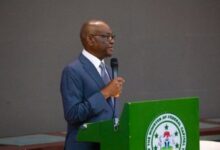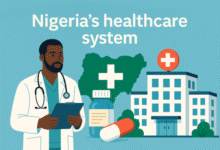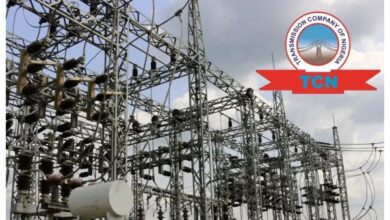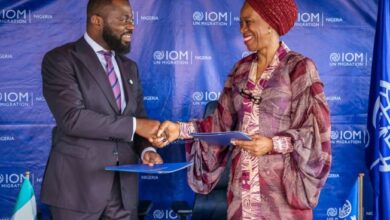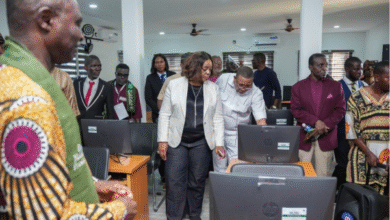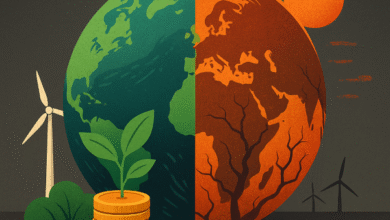NMDPRA says Nigeria consumes 50m litres of petrol daily
Actual petrol consumption levels in Nigeria could decrease
 The Nigeria Midstream and Downstream Petroleum Regulatory Authority (NMDPRA) says the country’s daily petrol consumption currently ranges from 45 million litres to 50 million litres.
The Nigeria Midstream and Downstream Petroleum Regulatory Authority (NMDPRA) says the country’s daily petrol consumption currently ranges from 45 million litres to 50 million litres.
NMDPRA’s Chief Executive Officer, Mr Farouk Ahmed, disclosed this while speaking on the sideline of the ongoing 18th Africa Downstream Energy Week in Lagos.
The News Agency of Nigeria (NAN) reports that the 2024 OTL Africa Downstream Energy Week has the theme: “Alliances For Growth”.
Ahmed said that higher petrol consumption during the fourth quarter, especially near the holiday season, was typical due to increased industrial and consumer activities.
He expressed hope that recent price adjustments/market liberalisation would reduce cross-border smuggling, helping to retain more petrol within Nigeria.
“We hope this price adjustment or liberalisation will discourage cross-border smuggling of the product, meaning that more petrol will stay within the country,” he said.
IPMAN assures fuel scarcity will soon be over
He said that actual petrol consumption levels in Nigeria could decrease but were unlikely to drop significantly.
Discussing the conference’s theme, Ahmed emphasised the importance of alliances in the industry for efficiency and cost reduction.
He said that fewer shared facilities would be more efficient than numerous idle private depots, benefiting both businesses and consumers.
“Collaborations or alliances among stakeholders will lead to greater efficiency and lower costs for consumers,” Ahmed said.
He said that shared facilities among agencies such as NMDPRA, Nigerian Maritime Administration and Safety Agency and the Nigeria Ports Authority could reduce operational inefficiencies.
According to Ahmed, NMDPRA does not plan to enforce mergers but industry players are encouraged to consider partnerships, especially in saturated markets, to improve efficiency and lower costs for consumers.
“With strategic alliances in place, we can reduce costs for consumers by making the most of our existing infrastructure,” he said.
Ahmed gave the assurance that NMDPRA would continue with evaluating project viability to ensure consumer benefit.
According to him, collaborative efforts and efficient operations are critical for a sustainable energy future in Nigeria.


